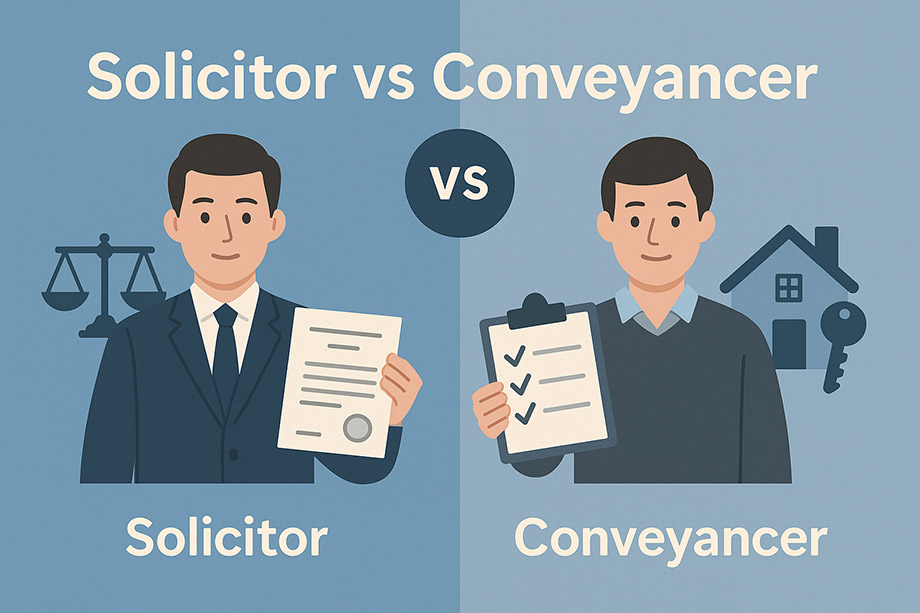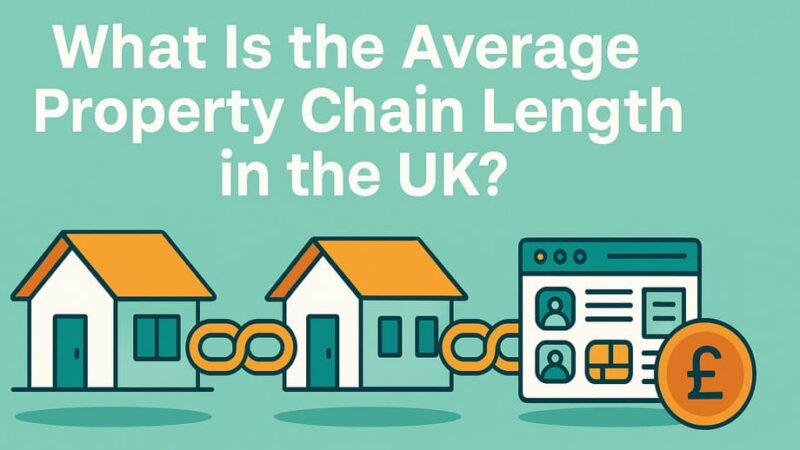Solicitor vs Conveyancer – Who Should Handle Your Property Sale?

If you’re preparing to sell a property, understanding the legal help you’ll need is essential. The big question: should you hire a solicitor or a conveyancer? Both can manage the legal aspects of a property transaction, but there are differences worth considering.
Solicitor vs Conveyancer: At-a-Glance Comparison
| Criteria | Conveyancer | Solicitor |
|---|---|---|
| Legal Scope | Property law exclusively | Full spectrum of legal areas |
| Cost | More affordable | Often higher fees |
| Use Case | Simple residential sales | Complex legal scenarios |
| Regulator | Council for Licensed Conveyancers (CLC) | Solicitors Regulation Authority (SRA) |
| Day-to-Day Focus | Property transactions only | May be handling other case types |
What Is Conveyancing?
Conveyancing refers to all the legal tasks required to transfer ownership of a property from the seller to the buyer. This includes:
- Drafting and reviewing contracts
- Coordinating with mortgage lenders
- Conducting property and local authority searches
- Managing deposit and final payment transfers
- Registering the transaction with HM Land Registry
Differences Between Solicitors and Conveyancers
A conveyancer is a licensed legal professional who focuses solely on property law. Because of this specialisation, they often offer streamlined and cost-effective service.
A solicitor is a fully qualified lawyer. They can also handle divorce, wills, litigation, and more. Some specialise in conveyancing, but their broad legal scope can be advantageous for complex sales.
When to Choose Each
- Go with a conveyancer when you’re selling a straightforward residential property.
- Choose a solicitor if legal complications might arise (e.g., disputes, shared ownership, boundary issues).
Both professionals must hold valid licenses and registrations. You can verify:
- Conveyancers: with the CLC
- Solicitors: through the SRA and Law Society
Selecting the Right Legal Support
Consider the following when selecting your legal representative:
- Reviews & Recommendations: Ask friends or your estate agent.
- Transparent Pricing: Get at least three itemised quotes.
- Communication: Find out if you’ll have a dedicated contact.
- Location & Availability: Local knowledge can be helpful, and in-person meetings may speed up document handling.
- Online Capabilities: Many firms now offer secure online portals for progress tracking.
Understanding Conveyancing Fees
Fees vary by firm and complexity. They might include:
- Fixed fees or hourly rates
- Land Registry charges
- Search fees (e.g., drainage, environmental)
- Bank transfer charges and VAT
Ask what’s included upfront and what costs extra if things get complicated.
Is DIY Conveyancing Worth It?
Legally, you can handle your own conveyancing — but it’s risky. Without legal training or professional insurance, you’re liable for any errors. Mistakes could delay or derail the sale entirely.
A professional will help ensure the sale proceeds smoothly, even if issues arise during the process.
Key Advice Before Choosing
- Check your mortgage lender’s panel requirements.
- Find out who will handle your case day-to-day.
- Understand their holiday and availability policies.
- Ask whether they offer online document uploads and messaging.
Conclusion
Choosing between a solicitor and a conveyancer ultimately depends on the complexity of your property sale and your personal preferences. For straightforward transactions, a conveyancer can offer specialised, efficient service at a lower cost. If your situation involves legal complexities or you simply want broader legal support, a solicitor may be the better choice. Whichever route you choose, ensuring they are experienced, accessible, and transparent will help your sale proceed with confidence and clarity.
Last Updated on July 21, 2025 by James Cartwright







